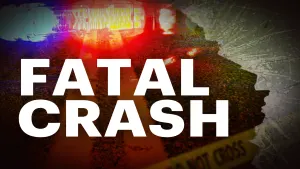More Stories
New Jersey Attorney General Matthew Platkin announced changes to the state’s “Use of Force Policy” for law enforcement. The revisions involve the response to barricaded individuals experiencing a behavioral or mental health crisis.
"Force is disproportionately used, overwhelmingly used frankly, in cases that involve mental health or emotional distress and that's particularly acute when it comes to barricaded individuals,” Platkin told News 12. "We've seen how when we don't ask law enforcement to do too much, when we don't put every burden on them, when we give them the resources and tools they need to do their jobs effectively that we can produce better outcomes."
The new revisions are meant to avoid situations like that of Victoria Lee and Najee Seabrooks who were killed by police during a mental health crisis.
Under the revised policy, tactical and crisis negotiation teams are required to respond to barricade incidents with qualified mental health professionals. It says first responding officers facing a barricaded situation are advised to wait for appropriate resources to respond and not attempt to force a resolution. In certain situations, law enforcement may now consider a tactical disengagement as a possible method of reaching a resolution. Law enforcement agencies will adopt policies mandating an immediate response by an on-duty supervisor to barricaded situations. It also says tactical teams will now be equipped with fewer lethal weapons.
"Many people in the community now fear that when they call the police in these types of incidents that their loved one who they are asking for support for may end up being killed,” says Lawrence Hamm, chairman for the Peoples Organization for Progress.
Activists argue that the policy still continues to use the same armed police response, which they say is the main issue.
“They need a compassionate response from someone who is medically trained to provide mental health resources,” says Yannick Wood, director of Criminal Justice Reform for the New Jersey Institute of Social Justice.
Wood fears the new policy - like the original, which focused on a co-response in any mental health crisis - may not be fully implemented.
Wood added, "In Victoria Lee's shooting, the officers did not appear to be following the current guidelines which were comprehensive. What's to say that future officers are going to comply with these new guidelines? There aren't sufficient consequences for officers not complying with use-of-force directives…The new directive also requires a SWAT response in certain circumstances and as I mentioned, more armed police are not the solution to mental health crises."
The attorney general’s office says more funds are being made available for response resources through the ARRIVE Together program. The new policy will take full effect starting in January.
More from News 12
5:32

LIVE UPDATES: Mandatory travel restriction to go into effect at 9 p.m.

Infant, 2 others killed in New Jersey Turnpike tractor-trailer crash

TIMELINE: When to expect the worst of the blizzard

Why this potential blizzard could produce thundersnow
5:59

Gov. Sherrill warns of life‑threatening blizzard with heavy snow, strong winds across New Jersey
0:22
